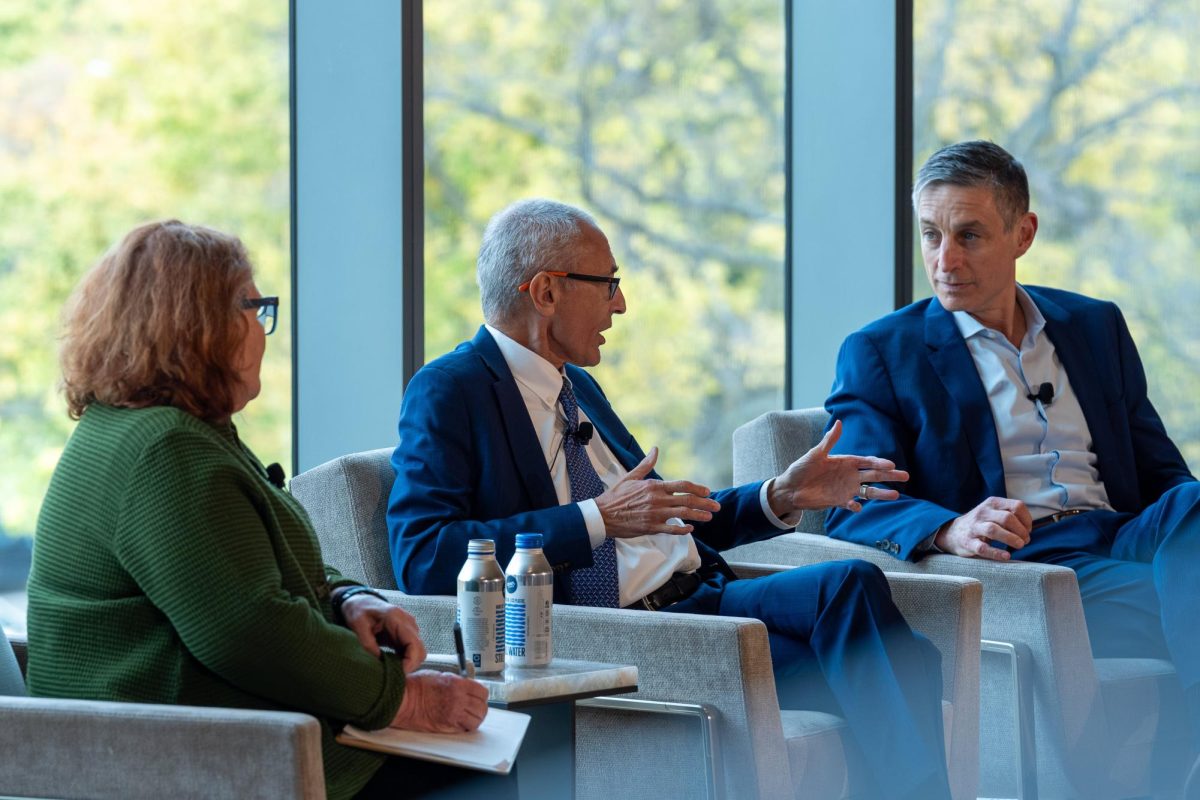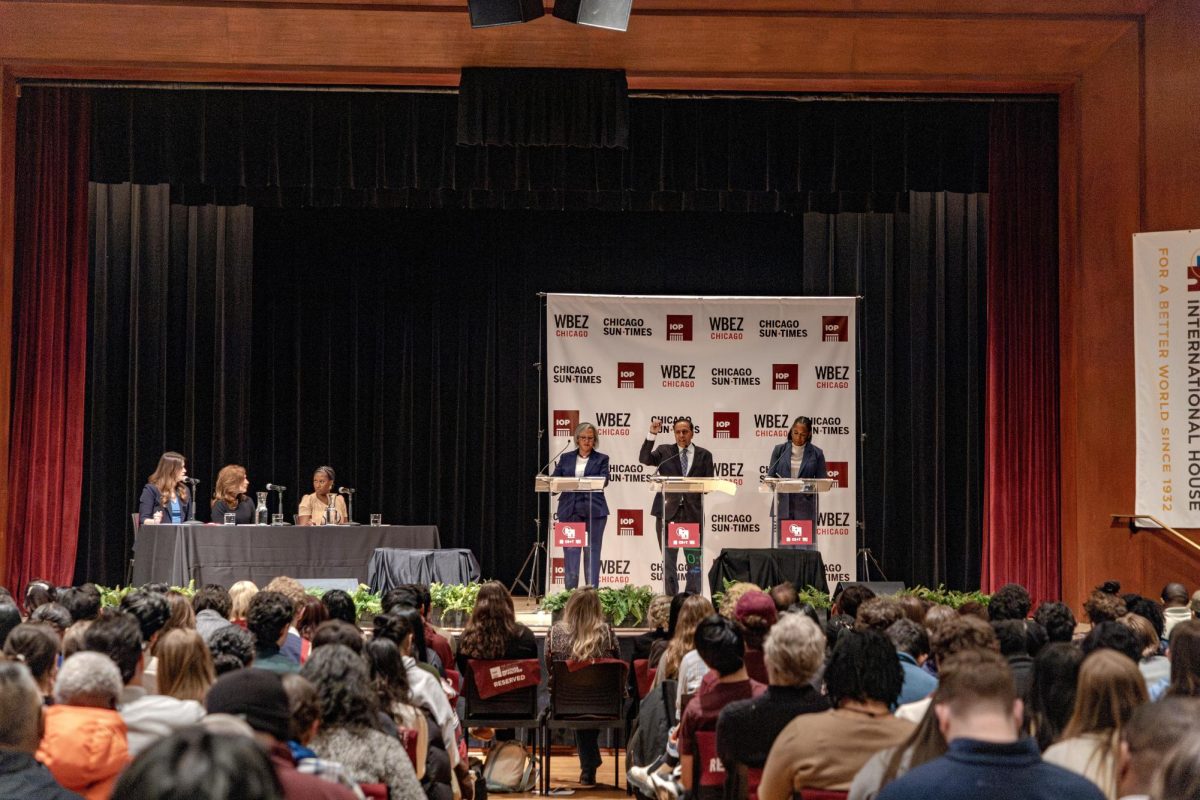In an interview with the Maroon, Michael Greenstone, who was appointed as the inaugural faculty director of the new Institute for Climate and Sustainable Growth by University President Paul Alivisatos in 2024, spoke on the decision to launch the institute, its primary goals, and the ways in which students and faculty can get involved.
Greenstone, the Milton Friedman Distinguished Service Professor in Economics and faculty director of the Energy Policy Institute at the University of Chicago (EPIC), has been a UChicago faculty member since 2014, after previously having worked at the school from 2000 to 2003. Under the first Obama administration, Greenstone served as the chief economist on the Council of Economic Advisers.
According to Greenstone, the decision to create a new Institute for Climate and Sustainable Growth was “driven by the reality that we have a climate challenge, and climate change is here. We’re feeling its impacts, and it’s just a taste of what’s coming.”
“A primary goal of the institute is to catalyze an all–University of Chicago approach to finding solutions to the climate and sustainable growth challenge,” Greenstone continued. In accordance with that goal, the institute will support several education-based initiatives designed to span several disciplines and research topics.
“On the student side, we’ve developed a really unique and powerful curriculum on climate and sustainable growth that’s going to produce a series of undergraduate and master’s programs,” he said of one of the academic opportunities the institute will support.
The program will feature a core curriculum that includes courses on climate sciences, energy technologies, economics, and politics, allowing students to “see the problem from 360 degrees.”
“A capstone of those core courses will be an experiential course where students will have to go to either rural India or rural sub-Saharan Africa and see what it’s like to actually live with very low levels of electricity,” Greenstone said. “[They can also] go to places like West Texas, where there’s a fracking boom, and see the local economic benefits of energy production.”
The institute’s research will prioritize three areas: economics and markets, energy storage and materials, and climate systems engineering. Greenstone explained that these focus areas were chosen “because they’re in service of finding a way to balance climate goals with sustainable growth.”
Greenstone emphasized the institute’s goal of producing research that supports tangible change across the focus areas. “On the economic side, we [UChicago] have a very strong track record of developing new research ideas that help people understand the world better and then delivering them to policy makers,” Greenstone said. “It [UChicago] influenced the United States government’s official number for the damages from climate change, called the social cost of carbon. There are pollution markets now in India that are a direct outgrowth of the research we’ve been doing here,” Greenstone added.
Supporting UChicago’s climate objectives, the institute will commit to the University’s pledge to reduce greenhouse gas emissions by 50 percent by 2030. Currently, 70 percent of the University’s emissions come from natural gas and electricity use in campus buildings. On-campus reductions will make up an estimated 27 percent of greenhouse gas emissions reduction by fiscal year 2030. This includes the use of software, equipment, and team structures to maintain and drive efficient operation of building systems. Another 24 percent will be through the procurement of renewable energy via a virtual power purchase agreement.
“The University is fully on track to following its plan for fiscal year 24 and fiscal year 25, and onward to marching towards fiscal year 2030,” Greenstone said.
Beyond Hyde Park, UChicago operates in over 48 nations. The University’s sustainability plans extend to these satellite campuses, and the campuses in Delhi, Beijing, and Hong Kong have been used to launch research projects for EPIC—of which Greenstone has served as director for a decade.
“At this point, we’re going to continue to do that and be looking for collaborations with local institutions. There’s great collaboration with Tsinghua University currently in China, as one example,” Greenstone said. “[Those collaborations are] central to getting the message across that 80 percent of the greenhouse gasses are projected to come from the worlds outside the OECD [Organisation for Economic Co-operation and Development] and to understand the nature of the problem and find solutions to it. It’s not good enough to sit here in Hyde Park.”
Greenstone believes UChicago is uniquely equipped to support the institute in addressing climate challenges. “First, the University has a long tradition of using economics to help diagnose and find solutions to all kinds of social problems… so it’s very authentic for the University to see this through an economics lens,” he said. “The second thing… is that every path to reducing greenhouse gas emissions… runs through getting better batteries, and they’ll [UChicago] help green the grid. They’ll help make transportation less greenhouse gas–intensive. And then the third comes from the University’s ethos of principles of free expression and going wherever good ideas go and being fearless and relentless about that.”
The Institute for Climate and Sustainable Growth held a launch on October 30, which included remarks from Alivisatos, Greenstone, and Illinois Governor J. B. Pritzker, among other notable leaders in the climate and energy space.















